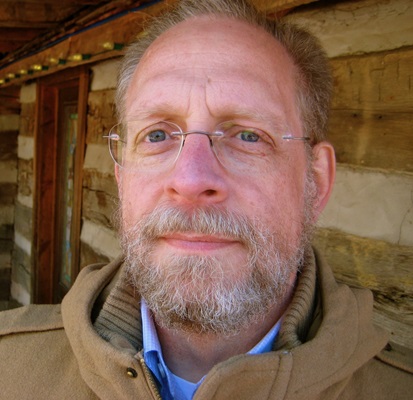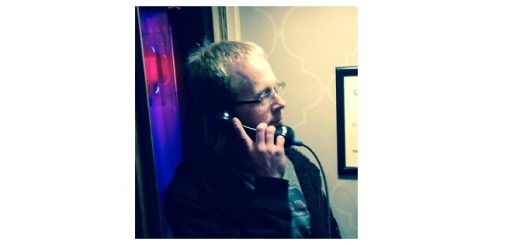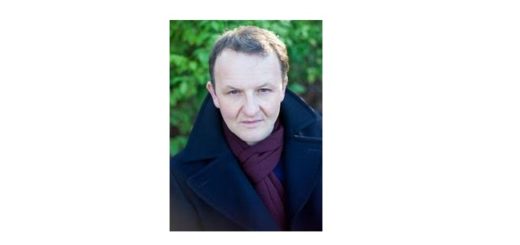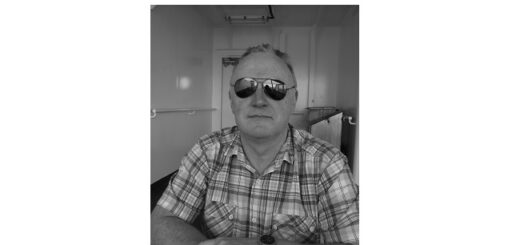Interview with Author Paul Lamb
Paul Lamb
I am thrilled to have interviewed author Paul Lamb, who shared with us details of his writing life, his book ‘Parent Imperfect‘, which was released on 1st June 2024, and answered a few fun questions. This post contains affiliate links.

Paul Lamb lives near Kansas City, but he escapes to his Ozark cabin whenever he gets the chance. His stories have appeared in dozens of literary magazines, and his two novels, One-Match Fire and Parent Imperfect, are published by Blue Cedar Press.
He has a master’s degree in English and writing from the University of Missouri – Kansas City. You can learn more about him at paullambwriter.com. He rarely strays far from his laptop.
1) Where did the inspiration for your book come from?
Parent Imperfect is the sequel to my first novel, One-Match Fire. I suppose you could say its inspiration came from there, but that would miss the deeper influence.
I have a cabin in the Ozarks, in the middle of a forest. It’s not as grand as what appears in Parent Imperfect, but I know it directly inspired both novels. It is my place of peace and restoration (and chores), much like in the novel. And while I don’t generally have squabbles with family members that find relief when I’m at my cabin, it is possible that I have gone skinny-dipping in my little lake as my characters regularly do in theirs. Thorough research is important.
2) How did you plan out the plot?
I didn’t. When I finished my first novel, I found that I still had stories to tell about the characters. They existed in my head and were busy going about their lives. So I wrote a few short stories about them, some of which were published in literary magazines. That was satisfying, but I didn’t see these individual stories as part of a greater whole. Not then. After completing each story, I thought I was finished with the characters. But they weren’t finished with me. They continued to present their stories to me. So I continued to write them. Eventually, I saw that I had enough substance and continuity within these characters’ stories to fill a slim novel. I reviewed what I had, identified the gaps in the narrative and character development, and wrote further stories — actually chapters — to fill those gaps, and the result was Parent Imperfect.
Throughout all of this, I relied on my understanding of the characters to navigate the plot. If presented with this situation, I knew my protagonist would react in a certain way. When questioned about a given matter, a supporting character would obviously say something
suited to who that person was at the time. It was because I knew these characters so well and knew how they would think and react and behave that I could almost literally follow them as they drove the plot forward.
I don’t like to outline. I think it can stifle the important discovery that less structured writing can bring. For me, plot flows from character. What the character Clarkson does to the family cabin at the end of the novel makes perfect sense in the mind of a fifteen-year-old boy inclined to magical thinking. I could never have plotted that outcome, or thus been open to the character development that flowed from it. I couldn’t have seen it coming. But I didn’t have to. Clarkson did for me.
3) When did you choose the title for your book?
Parent Imperfect was a title suggested by my editor. I had originally wanted to call it Nature Always Wins because it tied to the constant struggle the family has to maintain a cabin in the forest but also that their true natures as people will always come out. (It survived as one of the chapter titles.)
I think Parent Imperfect is a better choice. It focuses on the interactions of the fathers and sons in the novel. One parent is certain he cannot do it right. The other does it right but still falters. And their son sees it all and doubts that he is loved or that he belongs. As a title, Parent Imperfect shows that the novel is about characters, not about nature.
4) How did you come up with the names for your characters?
Mostly, I inherited their names from my first novel. And had I known then there was a sequel to be written, I might have chosen different names originally. As it is, there are a lot of hard Cs in the story: Curt, Kelly, Kathy, Clarkson. (I even have a girlfriend named Quinn who became Jordan.) But the first three names already existed, and Clarkson could not have been named anything else given the theme of the novel.
I named the David character after my best friend from childhood because I wanted him to be read as a decent, honest, hardworking man. His wife, Kathy, is Irish Catholic, and I wanted a name that was mainstream but still reflected that heritage. I gave Kelly his name because it could be used for a boy or a girl, and some of the consequences of this affect him throughout his life. (This is one hard C I would have changed if I could. I would have named him Terry.) Clarkson, as I said, could not have been named anything else as you’ll see if you read the novel.
5) How did you go about researching the content for your book?
Research was easy because I lived it, at least in part. I do have a cabin in the woods that requires constant maintenance to keep the forces of nature from claiming it. I am married and the father of children. The Kelly character has major depressive disorder, and I struggle with that.
However, there are some fundamental aspects of the story that I don’t have any direct experience with. I am not gay as two of the characters are. Nor was I adopted or had an adopted child. These required direct, focused research. The gay aspect is not really a point of the story. I depict it as normalized in society. The adoption matter is significantly more important to the plot and character development, and I read a great deal about the subject. Mostly what I learned is that everyone’s experience is unique. So I dove into my own thoughts and emotions to try to imagine what adoptive parents and an adopted child might think and feel. I think I did an honest job.
6) What made you choose this genre?
It chose me? I don’t like labels too much. The stories of Arthur C. Clarke are quite different from those of Ray Bradbury, yet both are grouped under the science fiction genre. So what’s the point? Or rather, the point could be that the genre label is only a first step in approaching the writer and the story.
I’ve dabbled in a few genres: some science fiction, mild fantasy, even cozy mysteries. But I’m drawn to stories about people. I realized I don’t want to do a lot of world building; I don’t want to invent languages or pursue scientific theories or learn the esoterica of police procedure. So I write stories about real people living real lives in the real world. Yes, there are aspects of Parent Imperfect that might be called magical realism, but part of me wants to think such things are possible in the real world.
Literary fiction, which I guess is what I write, is known for being character driven. The stories I tell are primarily about how people get through their lives. There is a plot, but what is key is watching how the characters move through it. In some chapters, not much happens outside of the characters’ hearts and minds. For example, I have a chapter where two characters are fishing, but they don’t catch anything. Because that’s not the point. The point is to have a plausible situation where they can have an important conversation.
7) How long did it take you to complete your book?
Because I didn’t know I was writing a complete novel when I began, it took longer than it might have. Even so, I don’t think more than three years passed from when I wrote that first, stand-alone short story to when I typed the last words of the whole novel. The time it took to get there allowed the important aspect of discovery to join the mix. If I had written an outline and devoted myself to writing a chapter a week, I don’t think the novel would have been as rich and deep as the one I discovered along the winding way.
I don’t give myself word count totals for each writing session. I only vaguely know how many words constitute a novel (and it’s a widely different number depending on who you ask). I just write the story as well as I can and stop when it’s done. Someone once told me that a story should be like a swimming suit: long enough to cover the subject matter but short enough to be interesting. Granted, my characters don’t wear swimming suits in their lake, but I don’t go into detail about that.
8) Can you describe your book in three words?
Fathers and sons.
9) What’s the hardest part of being a writer?
Do I have to pick only one?
Facing the blank screen each morning, certain I lack the talent and vision to accomplish what is only vaguely forming in my head. Struggling to get each sentence exactly right. Second guessing what I’ve had a character say or do, and then half of the time going back to erase what seemed like perfect words because they were not. Wondering if I’ve left anything out. Or put too much in. What will a beta reader think? What will an editor do with it? Will I recognize the outcome when it’s finished? Will anyone want to read what I’ve written? Will they see my point and understand my character’s motivations? Doubt, I’ve come to see, is the first tool in a writer’s toolbox.
After my first novel was published, I learned more about the “author” part of being a “writer.” It turns out that sitting before my laptop, staring at the screen for hours and trying to make the words come, is the easy part. Self-promotion, especially for the introverted personality most writers seem to have, is where the hard work begins. Getting reviews, getting interviews, getting on podcasts and in newspapers, getting libraries to shelve my novel, trying to give some life to what I’ve written. It’s a constant struggle. And I can never do enough. It’s far different from the solitude and warm sweaters and crackling logs in the nearby fireplace that writing is. Being an author is being a hustler, and I’m coming late and reluctantly to that lesson.
10) Why should our readers pick your book up?
It tells the stories of everyday people, facing the joys and heartaches of everyday life. You know these people. You’re rooting for them. I think there are things in Parent Imperfect that every reader can recognize in themselves, and in others. Part of being human is knowing empathy, and I think this novel presents that as a possibility. When the characters achieve it, the reader can as well.
Publisher – Blue Cedar Press
Pages – 292
Release Date – 1st June 2024
ISBN 13 – 978-1958728246
Format – ebook, paperback
Synopsis
Parent Imperfect, the sequel to One-Match Fire, tells the story of a man who was almost given up for adoption, another man who wishes he had been, and the son who came to them because he was.
Parent Imperfect is a novel about the joys and sorrows of fatherhood as two men, one an eager father and the other a reluctant father, face the challenges of raising their adopted son. One grows emotionally aloof because he fears he cannot love a child who is not biologically his own. The other battles severe depression yet knows he must remain the anchor for the little family. And as the son grows and sees all of this, he comes to doubt that he can ever truly belong or be worthy of love.
The boy finds solace in his grandparents, his growing artistic talent, which is haunted by horizontal lines that reveal their profound meaning at the novel’s climax, his imaginary friends, who may not be so imaginary, and the little cabin in the Ozarks where the men of the family have always found peace with each other as they shed their defenses (as well as their clothes when they skinny-dip) to find common ground. The novel culminates in a stolen car, a brazen act of vandalism to the beloved cabin, the revelation of long-held secrets, and what a fractious father and son find may be the beginning of a deep and hopeful relationship. It is ultimately a love story (with a hint of magical realism).
Parent Imperfect continues the saga of the Clark family in its newest generation, welcoming an important new character and saying goodbye to a beloved older one. It is a novel of resilience, hope, and the unlikely ways people find to bind themselves to each other.
Purchase Online From:
Fun Questions

1) Do you have a writing buddy?
No. I write alone in a repurposed bedroom that is now my office. In fact, I sometimes can’t stand even myself in there. (I can hear my heartbeat in my ear, which my doctor has told me is not a problem, so I play brown noise to silence it.)
2) Do you have any writing quirks?
I rise ridiculously early each morning to write. I am usually at my keyboard by 3:30 a.m. I check the headlines to see if the world ended while I slept. I check the weather to see if I want to leave my room that day or not. I turn on the brown noise. And then I take up whatever writing task is before me. Usually, I’ll reread some or all of what I wrote the day before to catch the rhythm, and then I’m off.
I will have brewed an entire pot of iced tea (unsweetened, of course) the night before, and I’ll drink it through the course of the morning. I try to stay off the internet as much as possible, though there may be some specific fact I need to learn before I dash back to my words. I write until the words stop coming. Sometimes that can be only a few hundred words but other times it may be thousands. And I’ll know as I’m writing that I’ll revisit those words and likely change some or all of them. That’s how it works for me.
3) Where do you write?
I have an old teak dining table that I use as a desk in my former-bedroom-office. It’s positioned so that the light from the dormer window falls in from the left. Thus, I don’t have a shadow from my hand when I’m writing in my journal. (Every writer keeps a handwritten journal, right?) No, I don’t have a crackling fireplace at my side. And I’m more likely to wear a hoodie than a sweater.
I’ve never had any luck writing in cafes or even at my cabin. There’s too much going on and I can’t immerse myself in the alternate reality of my story. I have found, however, that if I go to some uncommon place, such as the library, and re-read what I’ve written, I find many typos and word-choice errors that I missed. That’s a handy reason to leave my office.
4) Your book has been made into a movie, you’ve been offered a cameo role, what will you be doing?
There is a minor character named Jimmy. He is a country man who is older than the hills and wiser than he appears. He’s a sort of caretaker of the cabin for the family that lives far away in the city. I could play him. Seemingly facile yet hinting at mystery.
5) A talking owl has just finished reading your book, what’s the first thing he says to you?
“I liked the part about the owls hooting deep in the forest when your characters are sitting around their campfire. Put more owls in your next book.
Author links
Goodreads
Website
A big thank you to Paul Lamb for sharing his writing life with us and for a wonderful interview.





